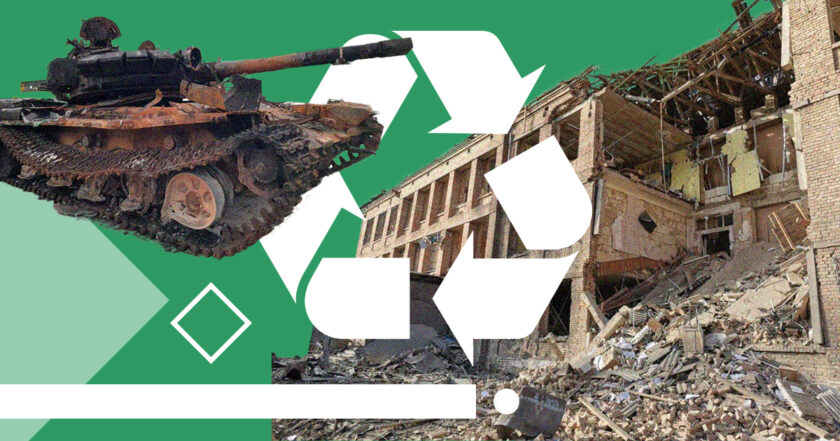It'll take decades to restore Ukraine's nature after russia's war – ecologists

It will take decades for Ukrainian nature to recover from the war
The Czech publication Blesk reports.
The publication notes that restoring the steppe south of Ukraine will take at least 50 years.
It is the opinion of the Ukraine project program coordinator of the Arnika environmental organization, Marcela Černochová.
"Different ecosystems have different recovery periods. For example, it will take 50 years to restore the ancient steppe in nature conservation areas in the south of Ukraine," she emphasized.
The project coordinator says some ecosystems and populations of animals and plants have been destroyed to the extent that we may lose them irrevocably.
"For example, important migration routes of several bird species pass through Ukraine," Černochová notes.
"Environment destruction, for obvious reasons, occurs somewhat in the shadow of human tragedies. russia uses scorched earth tactics and destroys large areas, including cities, with the intensive bombing," says Greenpeace spokesman Lukáš Hrabek.
The disaster increases with each additional explosion and unexploded ordnance, mines, or military equipment debris.
"According to estimates, it is already 214,000 tons of scrap metal," says Černochová.
The situation is challenging in Donbas, where oil refineries and warehouses often come under fire.
"Thus, explosions, fires or flooding of affected areas contaminate water, air, and soil with hazardous substances that can remain in the environment for decades," says the Greenpeace spokesperson.
According to Ukrainian ecologist Oleksii Anhurets, several attacks on industrial facilities and leakage of dangerous substances have been recorded in the Sievierodonetsk and Kharkiv areas.
He says that the estimated pollutant emission due to russia's shelling and bombing of oil storage facilities since the war began has already exceeded 290,000 tons. A large metallurgical plant emits this amount of pollutants in a year and a half.

Ukrainian scientists unite to assess russia's war impact on environment

Kremenchuk tragedy: environmental specialist believes most people suffered from poisoning after combustion

Scientists say there are far more dead Black Sea dolphins than they can record

Why are Black Sea dolphins dying, and how long will we have to wait to restore their population?
At the same time, polluted air is not only a problem for Ukraine; it can also "travel" to neighboring countries.
"It depends on the type of pollution, the direction and speed of the wind," Černochová explained.
Soil pollution is also a severe problem. In addition to the fire, an exploded grenade or projectile will cover the site and the surrounding area with heavy metals. However, the soil is poisoned not only by them. For example, a fuel leak from a hit or moving military equipment contaminates it with petroleum products.
"In the future, all toxic substances in the soil can get either directly into food or the food chain," Černochová noted.
Ukrainian agriculture and farmers face another danger.
In many places, farming or harvesting grain is impossible because of the security situation and unexploded mines and ammunition.
"Ukraine is called the world's breadbasket, so the war will have a harrowing effect on some poorer countries, where there is a real threat of famine," she added.
Ukrainian environmental and air quality monitoring experts Maksym Soroka and Oleksii Anhurets are part of the team preparing the methods to assess and calculate damages from russia's invasion.
However, according to Maksym Soroka, it is important not to single out crimes against the environment in some particular category because they are "also crimes against humanity."
He considers it part of the genocide of the Ukrainian people.
"The Ukrainian environment and nature are being deliberately destroyed to harm people, destroy their homes, and make it impossible to live in their country," he says.

War at sea: What's happening to life in waters of Black and Azov seas?

Shelling and fires in cities: what are the consequences for the city environment and how to deal with them?

Munitions and chemicals: How does war damage soils, and what are the solutions?

Forest fires, war, and unexpected consequences: what to do with conflagration?
Read Rubryka's daily timeline of war: current news on Ukraine's defense against russia's aggression.


















































